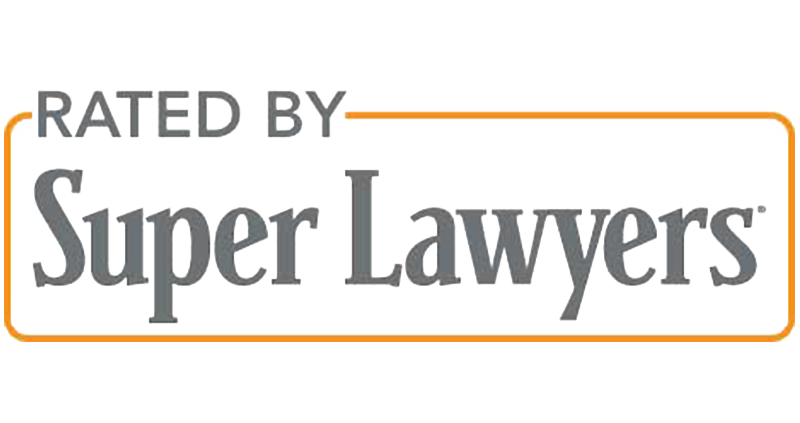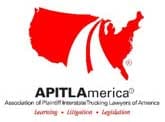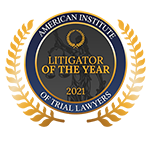What do I do if you have been injured in an accident?
February 17, 2010
By Bob Coleman,
Coleman, Chambers & Rogers, LLP
You’ve been injured in an accident that was not your fault, so naturally you want the responsible driver to pay. That’s your legal right. But the reality is that getting a fair recovery from the other driver, and in many cases your own insurance coverage, can be a challenging and time-consuming legal process. While the vast majority of auto accident claims are settled out of court, it’s possible your quest for just and fair compensation could go all the way to a jury trial. The job of your attorney is to guide you through this process to obtain the best and fairest result for you. However, there are some important steps you, the victim, can take to increase the chances of a successful recovery. The following are some suggested tips on how to react to an accident to help preserve your claim for damages. Obviously, some of these steps will be impossible in the event you’re seriously injured. If that’s the case, encourage family members or others to assist you in documenting and gathering information about your accident.
Safety
Obviously, the number one concern in the immediate aftermath of any car accident is every person’s safety. If someone is injured, give first aid if you are qualified and call 9-1-1 immediately. If anyone leaves the scene, report this immediately to 9-1-1.
Call 9-1-1
By calling 9-1-1, a dispatcher will send police and rescue units to the scene of your wreck. The rescue units will treat the injured and arrange for their transport to an emergency center if necessary. Police will usually stand by to direct traffic, gather information and fill out a report. If you’re able, make sure to tell the officer your version of what happened. Don’t let him get just one side of the story. Also ask the officer at the scene how to get a copy of the accident report and write down the officer’s name and badge number.
Get information
Get as much information at the scene as you possibly can to save from having to track people down later on. Obviously, this is impossible in cases where injured people are rushed from the accident. Otherwise, find out some basic information: the tag numbers of all the cars; the drivers’ and passengers’ names; phone numbers and addresses. Most importantly, find out if they are insured. If the responsible driver tells you, or you even suspect, that their vehicle is uninsured, you will want to contact your own insurance agent immediately.
Citations:
Citations may be issued by police at the scene. Find out if the other driver was cited, and how to find out if additional citations are pending. If you are cited, this does not automatically mean you are responsible for the accident. However, if you plead guilty to the offense, or are later found guilty in court, this could affect your chances to recover. Therefore, you should probably consult with an attorney before pleading guilty or going to court over any traffic citation related to your accident claim.
Do not admit responsibility
It’s possible admitting fault could be used against you once litigation begins. What happened in a wreck is sometimes a complicated question involving conflicting stories about what happened. Even though you think you may be responsible, once more facts are known, it may turn out someone else, or some other event, actually caused the wreck. So when you talk to police and anyone else at the scene, tell them the honest facts about what happened, but do not admit any fault.
Photos of the damage – today small digital cameras and cell phones are so common that most of us have access to these every where we go. If possible, have someone take photographs of the wreck at the scene. If taking photos at the scene is not possible, take pictures of the car’s damage before it is repaired. Make sure these are from several different angles. Also, you may want to go see the exact location where the scene occurred soon after the accident. Photograph any signs that are difficult to see, dangerous looking intersections, etc., especially if you believe these may have played a part in your accident.
Seek treatment for any pain
If you have any pain in the hours or days after your wreck, get it checked by a physician. Even if you were treated at an emergency room after the accident, if you still have pain, or feel it in places where you weren’t feeling it immediately after the wreck, see your doctor. Many injuries common in car accidents are not always apparent in the minutes or hours after the crash. Stiffness and soreness to the neck and back – often resulting from whiplash or violent jostling due to the collision – often are not felt until hours after the accident or the following day. Bruising can also go unnoticed until a few days after the accident. What may seem like minor soreness that you hope will just go away may turn out to be a more serious injury that could require expensive treatment, surgery or therapy. The sooner all of your injuries are diagnosed and treatment begins, the stronger your case will be that the driver responsible for the injury should have to pay for it. Make sure to continue all treatment until your physician says it’s no longer necessary.
Photos of injuries — If you have any visible signs of injury – cuts, swelling, bruises, scarring, etc., have someone take color photographs of these, preferably on the day the bruising or swelling is most severe. If you received medical treatment, take photographs of the stitching, casts or scars after surgery.
Contacting insurance
It’s best to contact your insurance agent as soon as possible after the accident. If you wait too long, it’s possible your insurance will attempt to deny you coverage. You’ll usually need to know the date, time, and place of the accident, the names of other drivers, passengers and witnesses, etc.
Are you covered by insurance?
What insurance applies to the accident is often a complicated question in an automobile accident. Even if you don’t pay out of pocket for car insurance, it may be possible that someone else – the owner of the vehicle you were in, a spouse or live-in relative – may have some form of auto insurance that could apply to your claim. Discovering all available sources of insurance is an important job for your attorney should you seek representation. If you know you are covered by insurance, request a copy of the most recent, updated policy from your agent.
Generally, there are three types of car insurance that apply to an auto claim:
1) Liability – this is the coverage that the at-fault driver uses to pay the victim. It’s required in Georgia for all driver’s to carry a minimum liability limit of $25,000 per person, and $50,000 per accident.
2) UM – many vehicle owners carry uninsured motorist coverage (UM) in case there’s no liability insurance to apply to the claim, or not enough to cover all damages. This is an optional form of coverage in Georgia, that is available in two different types: excess and reduction.
3) Med pay and worker’s comp – this is a set aside in many auto policies, used to pay for some of your medical treatments and time off of work.
Health insurance, Medicare/Medicaid
Because it may be months, or even years before you receive any payment from another party for your damages, including your own uninsured motorist coverage, you will probably depend on some form of health insurance to pay a portion or all of your treatment. You may be required to tell your health insurance you were in a car accident that wasn’t your fault. You may also be required to sign what’s known as a subrogation or reimbursement agreement with the provider. It’s often wise to contact an attorney to review the wordings of these agreements prior to signing. You will also want to request the most recent version of your health insurance policy for you and your attorney to review.
Other insurance
If you are contacted by a representative of another person’s auto insurance about your accident, you do not have to answer any questions. Any statements you make could be used against you. Politely advise them to contact your own insurance agent, or your attorney if you have representation.
Keep good records
An accurate and complete record of all treatments related to your accident is critical for maximizing your potential compensation. From the moment you receive your first bill, create a file for collecting all this information. If you retain an attorney, make sure to share this information, and agree to a HIPPA agreement authorization, giving your attorney legal access to your medical records.
Keep a log
Your damages are not just limited to physical injury. You can also seek some compensation for emotional or non-injury related damages, such as a disruption to your work and daily life. This can include everything from no longer being able to perform your job, to not being able to pick up your small child. It’s not just physical pain from which accident victims suffer, but disruption to their work and daily lives. As you encounter these difficulties, have a place where you can write them down to help you remember later on.
Should you hire an attorney?
Whether or not you should retain an attorney is a personal decision that, among other considerations, depends on the severity of the accident and your injuries. If it’s a fender bender, and no one is hurt, a simple phone call to the respective insurance agents will probably meet your needs. However, if you were injured, you will probably need a personal injury attorney to protect your interests. Most personal injury lawyers in Georgia will offer an initial consultation and offer to work on a contingency fee** basis. A contingency fee means the attorney is paid based on a percentage of your eventual settlement or jury award, if there is one. That means there’s no up front costs to you, as the attorney will only be compensated by receiving a portion of your eventual settlement payment or jury award. Today, a thirty- to forty-percent contingency fee is considered standard in Georgia. Some attorneys are also willing to work on an hourly-basis, however, this is more rare in personal injury practice.
**Contingent attorneys’ fees refers only to those fees charged by attorneys for their legal services. Such fees are not permitted in all types of cases. Court costs and other additional expenses of legal action usually must be paid by the client.
















